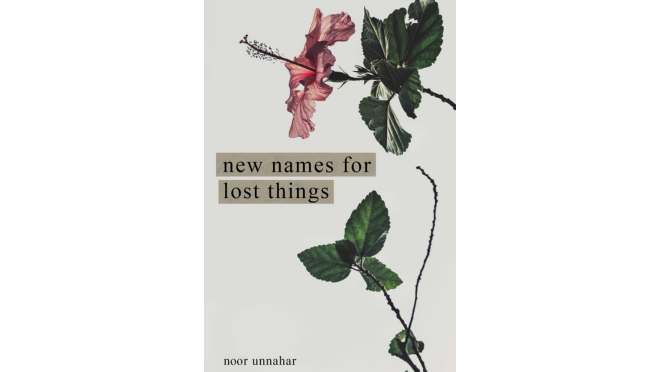New Names for Lost Things: a poetic meditation through identity and solitude
New Names for Lost Things: a poetic meditation through identity and solitude

Have you ever found your thoughts illustrated into collages and visual images? Or ever read a book that not only speaks but also shows? Well, Noor Unnahar’s poetry volumes are one of a kind that have both handwritten poetries with visual art that perfectly mirror the thoughts and imagination of both the poetess and her readers.
She named her second poetry collection, “New Names for Lost Things” (Andrews McMeel, 2021) which will indeed take the readers into a poetic meditation through words and visuals from the pages of the poet’s very own journal that she wrote every day to turn her own identity and loss into words.
Being born into a cultural Pakistani family, Noor often finds herself into a self- dilemma- she is sometimes as rebellious as The Little Mermaid, Ariel in the deep water- kingdom, Atlantica. While other times she finds herself caged into Cinderella’s shoes, that trap her tight into loneliness and hostility.
Growing up in a household and surrounded by women who speak soft but love hard, Noor became a voice of those women and an advocate of womanhood too. In New Names For Lost Things, she upholds the identity of her own and the women around through the written and illustrated journals, using a style that is modern and nostalgic at the same time. Reading through the pages feels like flipping through a vintage dictionary-learning new meanings and details of life.
The title itself explores the new phases of life that we accept by letting go. This is also about the things that we inherit in life, not through blood but with longing, patience and in silence.
She writes, “To forget is to half- forgive
Who unearths the dead to announce, “You’re not alive to me anymore?”
They will never be not- dead.”
She unveils different layers of the paradoxes we face in life. The missing pieces of loneliness and forgiveness can be found in these verses. There are metaphorical examples of the poet’s real life experiences, family dynamics, womanhood, cultural background and sometimes love, as well.
This collection of poems represents grief in a way that contemplates truth and attachment, all in all. In that light, she writes,
“Grief doesn’t arrive alone
It brings with it
Everything that you have ever lost.”
She talks about her mother- technically she tells the story of all the South- Asian mothers, forgiving everything, praying for the broken things and especially giving birth to rebel daughters. Noor highlights the weight of the traditions, she speaks of the mothers and the fathers who carry untold histories within themselves and the things we lose on the way of stepping into new names or embracing new identities.
Standing on the light of her Pakistani heritage, Noor reflects an identity that feels personal to all and at the same time, universally resonant too.
You should not expect to finish this book in one sitting. Instead, you would adore returning to it—in joy or sorrow, in solitude or self-discovery.


